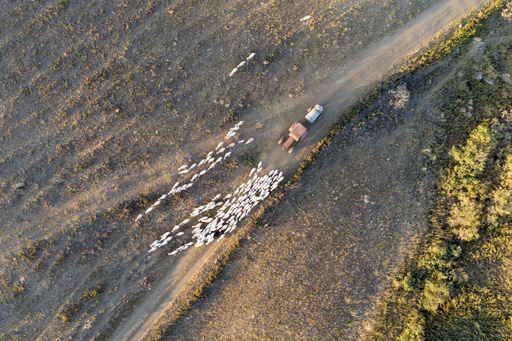In the scorching heat of a July afternoon, a municipal water truck arrives at Liborio Mangiapane’s farm in southern Sicily. The severe drought, coupled with record-high temperatures, has decimated much of the region’s hay and is putting immense pressure on farmers. Mangiapane struggles daily to secure water for his 250 cattle and sheep, resorting to frantic calls, long journeys to distant wells, and waiting for municipal tankers. Without rain by the end of August, he fears he may have to sell his livestock.
The drought, the worst in over 20 years, has led to a 70% decrease in fodder production across Sicily, as reported by Coldiretti, Italy’s main farmers association. The water basins are nearly empty, prompting strict water rationing by authorities. Sicily, a significant wheat producer for Italy, is facing a potential 70% reduction in production, necessitating increased reliance on imports. Olive oil and peach harvests may be impacted, while the grape harvest has started unusually early due to the hot weather.
In response to the crisis, the national government declared a state of emergency in Sicily in May and allocated funds for water tankers, well drilling, and aqueduct repairs. Coldiretti donated fodder, and subsidies were provided for farmers purchasing hay from external sources. Rainfall deficits of up to 60% have been recorded in parts of Sicily, with temperatures soaring above 40 degrees Celsius in June.
Farmers like Luca Cammarata are witnessing once-reliable water sources vanish, leading to challenges for their livestock. Lake Pergusa, once a thriving habitat for birds, now resembles a small puddle. Water scarcity in the region is forcing authorities to open new wells, repair desalination equipment, and even seek external water sources, like the Italian navy tanker ship that delivered water to the most affected areas.
As climate change exacerbates water scarcity and soaring temperatures in Sicily, efforts are underway to adapt through aqueduct upgrades and the construction of new water reservoirs. Giulio Boccaletti, from the Euro-Mediterranean Center on Climate Change, emphasizes the need to prioritize water usage, especially in agriculture, as Sicily grapples with what is being termed as the “new normal” of climate change.


